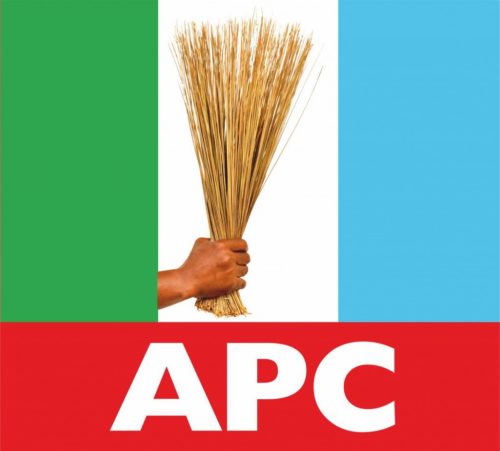Politics
New Tax Reforms Will Benefit All Regions Equally – Tinubu
The Presidency has clarified that the proposed tax reforms, including changes to Nigeria’s Value-Added Tax (VAT) distribution model, are intended to benefit all regions equally.
This response follows opposition from the Northern Governors’ Forum, a coalition of governors from Nigeria’s 19 northern states, who expressed concern over aspects of the reform at a meeting held on October 28.
READ MORE: Young Man, 4 Friends Die After Eating Poisoned Pepper Soup Of Ex-Girlfriend
Bayo Onanuga, Special Adviser to the President on Information and Strategy, disclosed this in a statement released on Thursday.
Led by Governor Muhammed Inuwa Yahaya of Gombe State, the governors, supported by traditional rulers like the Sultan of Sokoto, His Eminence Muhammadu Sa’ad Abubakar III, cautioned that the proposed VAT model might disadvantage their states.
The statement reads, “While we commend the Governors and traditional rulers for supporting President Bola Tinubu over the success recorded in addressing the country’s security challenges, we consider it necessary to address the misunderstandings and misgivings around the tax reform already embarked upon by the administration.
“President Tinubu and the Federal Executive Council recently endorsed new policy initiatives aimed at streamlining Nigeria’s tax administration processes, enhancing efficiency and eliminating redundancies across the nation’s tax operations.
“These reforms emerged after an extensive review of existing tax laws. The National Assembly is considering four executive bills designed to transform and modernise Nigeria’s tax landscape.
“First is the Nigeria Tax Bill, which aims to eliminate unintended multiple taxation and make Nigeria’s economy more competitive by simplifying tax obligations for businesses and individuals nationwide.
“Second, the Nigeria Tax Administration Bill (NTAB) proposes new rules governing the administration of all taxes in the country. Its objective is to harmonise tax administrative processes across federal, state and local jurisdictions for ease of compliance for taxpayers in all parts of the country.
“Third, the Nigeria Revenue Service (Establishment) Bill seeks to rename the Federal Inland Revenue Service (FIRS) as the Nigeria Revenue Service (NRS) to better reflect the mandate of the Service as the revenue agency for the entire federation, not just the Federal Government.
“Fourth, the Joint Revenue Board Establishment Bill proposes the creation of a Joint Revenue Board to replace the Joint Tax Board, covering federal and all states’ tax authorities.
“The fourth bill also suggests establishing the Office of Tax Ombudsman under the Joint Revenue Board, which would serve as a complaint resolution body for taxpayers.
“It is instructive to note that these proposed laws will not increase the number of taxes currently in operation. Instead, they are designed to optimise and simplify existing tax frameworks.
“The tax rates or percentages will remain the same under these reforms, as they focus on ensuring a more equitable distribution of tax obligations without adding to the burden on Nigerians.
“The reforms will not lead to job losses. On the contrary, they are structured to stimulate new avenues for job creation by supporting a dynamic, growth-oriented economy.
“Importantly, these laws will not absorb or eliminate the duties of any existing department, agency, or ministry. Instead, they aim to harmonise revenue collection and administration across the federation to ensure efficiency and cooperation.
“At the moment, tax administration lacks coordination among federal, state, and local tax authorities, often resulting in overlapping responsibilities, confusion, and inefficiency. Without reform, this inefficiency will persist.
“The proposed laws aim to coordinate efforts between different tiers of government, resulting in better tax resource management and greater clarity for taxpayers.
“Under existing laws, taxes like Company Income Tax (CIT), Personal Income Tax (PIT), Capital Gains Tax (CGT), Petroleum Profits Tax (PPT), Tertiary Education Tax (TET), Value-Added Tax (VAT), and other taxing provisions in numerous laws are administered separately, with individual legislative frameworks.
“The proposed reforms seek to consolidate these multiple taxes, integrating CIT, PIT, CGT, VAT, PPT, and excise duties into a unified structure to reduce administrative fragmentation.
“On the proposed derivation-based VAT distribution model, which the Northern Governors oppose, it must be stressed that the new proposal, as enunciated in the Bill, is designed to create a fairer system.
“The current model for distributing VAT is based on where the tax is remitted rather than where goods and services are supplied or consumed.
“The ongoing tax reform seeks to correct the inherent inequity in the current derivation model as a basis for distributing VAT revenue.
“The new proposal before the National Assembly outlines a different form of derivation which considers the place of supply or consumption for relevant goods and services.
“This means that states in the Northern region that produce the food we eat should not lose out just because their products are VAT-exempt or consumed in other states.
“These reforms are critical to improving the lives of Nigerians and were not put forward by President Tinubu to undermine any part of the country.
“There is no better time than now for the National Assembly to give due consideration to these bills that will overhaul our tax systems and create the revenue all the tiers of government require to fund the development our country and people urgently need.” It added
Politics
JUST IN: Political Earthquake In Delta As Gov Oborevwori Defects To APC
Delta State Governor, Rt. Hon. Sheriff Oborevwori, has officially joined the All Progressives Congress (APC), ending his long-standing association with the Peoples Democratic Party (PDP), under which he was elected in 2023.
The switch was confirmed on Wednesday after a closed-door meeting at the Government House in Asaba.
According to his Chief Press Secretary, Sir Festus Ahon, the decision came after extensive deliberations.
READ ALSO: Edo LP Senator, Neda Imasuen Set To Join APC
“This move followed wide consultations with political stakeholders and is in the interest of Delta’s long-term development,” Ahon stated.
Oborevwori was welcomed into the APC by senior party figures, marking what observers are calling a calculated political maneuver with potential ramifications for the 2027 elections.
More to follow…………..
Politics
Edo LP Senator, Neda Imasuen Set To Join APC
The Labour Party (LP) in Edo State may be on the verge of losing another key figure, as Senator Neda Imasuen, representing Edo South Senatorial District, is reportedly considering a defection to the All Progressives Congress (APC).
Party insiders and political observers say the senator is under increasing pressure from APC leaders to switch allegiance, with recent developments pointing toward an imminent move.
Imasuen, who chairs the Senate Committee on Public Petitions, Ethics and Privileges, recently stated that the Supreme Court’s verdict on the LP crisis might have come too late to prevent the damage already done, which has resulted in multiple defections across the country.
READ MORE: Okpebholo Inspects Agro, Road Projects In Edo Central
The senator is said to have a close working relationship with several prominent APC figures in Edo State and has been seen at various public functions alongside them.
Notably, he once served as a senior legislative aide to his predecessor, Senator Matthew Urhoghide—now an APC member—and also acted as Director General of the APC Campaign Council for the upcoming September 21 governorship election.
Further fueling speculation, Hon. Eugene Utubor, Special Adviser to Governor Monday Okpebholo on Political Mobilisation and Engagement, visited the senator on Tuesday night to lobby him into joining the APC and supporting the governor’s developmental drive.
Sources privy to the lengthy meeting described it as productive.
In a statement following the visit, Imasuen praised Governor Okpebholo’s leadership, saying, “The governor has done remarkably well in such a short time. It is crucial that we come together to ensure the success of his vision for our people. Every well-meaning Edo citizen is encouraged to rally around the governor as he works diligently for our collective progress.”
While no official defection has been announced, Imasuen’s words and actions suggest his exit from the Labour Party could be only a matter of time.
Politics
APC Sets N5m Nomination Fee For Chairmanship Aspirants In Lagos LG Polls

The All Progressives Congress (APC) in Lagos State has released the official fees and guidelines for aspirants contesting in the upcoming local government elections scheduled for July 12.
According to the document, jointly signed by the party’s State Chairman, Pastor Cornelius Ojelabi, and Secretary, Dr. Adeola Jokomba, chairmanship aspirants will be required to pay a nomination fee of N5 million, along with an administrative fee of N500,000.
In a bid to encourage female participation in the electoral process, the APC reduced the chairmanship nomination fee for women to N2.5 million, though the administrative fee remains at N500,000.
READ ALSO: Okpebholo Welcomes Ikpea To APC, Expects More Defectors
Similarly, the party introduced incentives for young aspirants under the age of 40, offering them a 50% discount on the nomination fee while maintaining the administrative fee.
For aspirants living with disabilities, the party completely waived the nomination fee and fixed the administrative fee at N250,000.
Aspirants seeking councillorship positions will also pay fees, with male contenders expected to pay N1 million for the nomination form and N100,000 as an administrative fee.
Female aspirants will pay N250,000 for the nomination form, while the administrative fee remains the same.
The APC noted that youth aspirants applying for councillorship positions would also receive a 50% discount on their nomination fee, although they will still be expected to pay the full administrative fee.
For persons living with disabilities contesting for councillorship seats, the nomination form will be issued at no cost, but an administrative fee of N50,000 will apply.
The party also clarified that no separate fee will be charged for vice chairmanship positions.
“These fees shall be paid by way of bank draft in favour of the All Progressives Congress, Lagos State, State,” the guidelines stated.
Beyond the financial requirements, the APC outlined other conditions for eligibility. Chairmanship aspirants are expected to be at least 30 years old, while councillorship hopefuls must have attained the age of 25.
Academic qualifications require a minimum of a school certificate or its equivalent, with higher qualifications considered an added advantage.
The guidelines also set out the endorsement process for aspirants. For chairmanship hopefuls, five registered party members who are voters within the aspirant’s ward, local government or LCDA must endorse their nomination forms.
Councillorship aspirants will need the signatures of 20 registered party members from their wards.
The party emphasized the need for all aspirants to prove their loyalty to the APC and show active involvement in party activities.
Each candidate must also sign the party’s Code of Conduct.
“Only aspirants cleared by the Screening Committee shall be eligible to stand for election at the party’s primaries,” the guidelines noted.
In line with constitutional provisions, the APC further stressed that any party officeholder intending to contest must resign their position at least 30 days before the election or the party primary.
“All aspirants shall comply with constitutional provisions and requirements applicable to the public office they seek to contest for,” the party added.

















